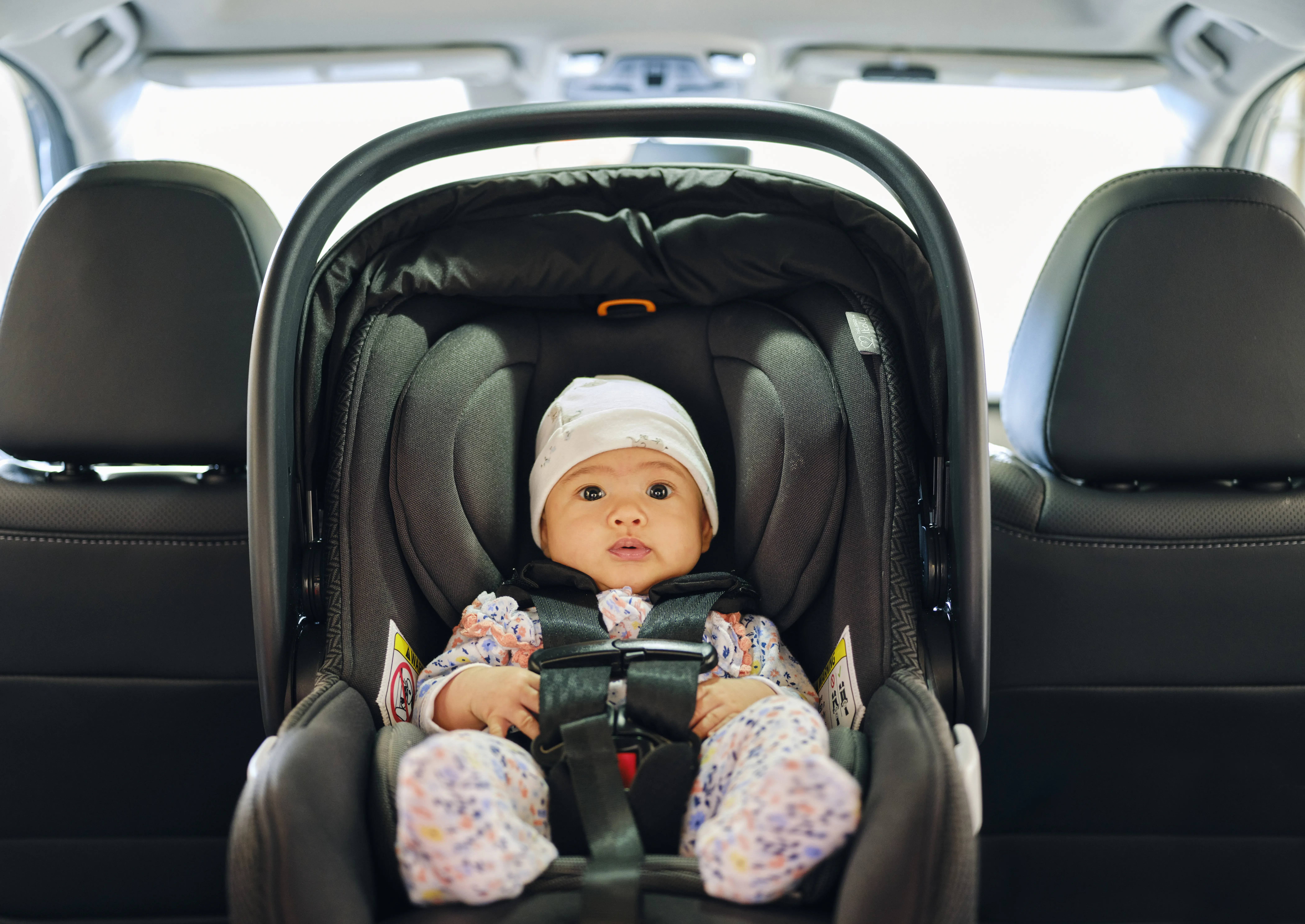8 Safety Tips For New Parents
You’d do anything for that new bundle of joy! Follow these guidelines for a safe homecoming:
- Get home safely: All hospitals require a properly installed car seat before you can head home with your baby. Pick a safe car seat that meets all U.S. safety guidelines. The seat should include a chest clip and be rear-facing [pictured]. You should also learn how to install it correctly. Child safety seats can be installed or inspected at a fire station near you. It is best to call ahead to ensure the fire station has certified personnel available.
- Prepare for any emergency: Consider taking an infant first aid and/or CPR class before baby’s arrival, and request that other caregivers also get certified. Choose a pediatrician before delivery. When choosing a pediatrician, consider ahead-of-time if they have after-hours appointments, weekend hours or a 24/7 phone line. Have all emergency numbers easily accessible.
- Know what to expect: If this is your first baby, you are learning on-the-job. Babies are full of surprises, but you can learn more about what to expect in the early days here. I recommend taking a newborn class to learn even more.
- Sleep Soundly: Always put your newborn baby to sleep on their back in a JPMA-certified crib or bassinet in the same room as you. Make sure the bassinet does not have any loose bedding, pillows or toys. Swaddling can help soothe infants and help them sleep, stop swaddling as soon as they start to show signs of rolling over.
- Baby-proof your home: There are many ways to protect your baby from at-home risks. Install smoke and carbon monoxide detectors, and ensure they are working. Inspect your house for choking hazards—look out for items the size of a quarter or smaller. Install outlet covers, window locks and cabinet safety latches to secure all medications and chemicals.
- Be bath smart: A newborn’s skin is sensitive. To reduce the risk of burns, set the hot water temperature back a little, to around 120 degrees Fahrenheit (F). You can check the water temperature with your elbow before it touches the baby’s skin.
- Monitor your baby: Never leave your baby unattended in a car, around pets or other young children, on a raised surface or around water. Always have one hand on the baby when changing them. A properly installed monitor makes watching and listening for your baby even easier.
- Quit smoking: For your health, and the health of your baby, consider quitting smoking and vaping. Ask others to keep your home and car free from smoke. Secondhand smoke can cause serious health problems for children, including increased ear infections, chest infections and asthma.
Chesapeake Regional Healthcare offers many classes, tours and support groups for parents and parents-to-be. Find out more.
Featured Image
